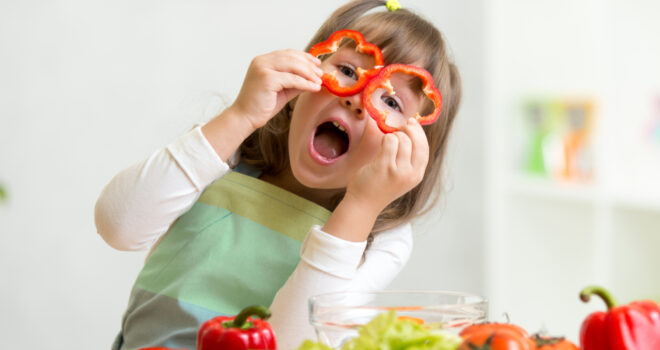An interview with Ysabelle Levasseur, a dietician-nutritionist, who works in Paris and the south of France and is very passionate about her job *.
Ysabelle Levasseur is a trainer, hosts workshops and writes for certain media. She teaches children and adults to eat well and reminds them of the principles of eating right. She also shares plenty of valuable advice about vegetables. A heart-to-heart with a keen professional.
Your career path is rather atypical compared to those of most nutritionists. Can you tell us more about it?
Ysabelle Levasseur – That’s right. After several years in the marketing and communication profession, a life-changing event prompted me to focus on my original interests, again namely food and the pleasure of eating well. This decision led me to train as a dietician, after which I soon focused on some major challenges after becoming involved in the PAERPA programme in Île de France. This project provides support to elderly citizens at risk of malnutrition and includes nutritional care. I then opened a dietician’s practice in the 1st Arrondissement and in the south of France*.
But I love all things nutritional, which is why I also give cooking lessons and cooking workshops, teaching children at school, adults and chefs the pleasure of tasty food. I also work as a nutrition and dietetics trainer and regularly write for the media. And finally, I am also the author of a book called “Allégez votre assiette’ published by Alpen that was published in 2016 and provides gentle food education by breaking through assumptions in a simple and understandable way without prescribing specific behaviour.
You organise fun food workshops for children. Which approach do you use to teach children about taste, about nutrition and, in the case of neophobic children, to eat vegetables for example?
Ysabelle Levasseur – I prefer to work in small workshops and I generally start by discovering their favourite vegetable, in order to understand how bad their food neophobia is. Children are naturally curious; they have a very open mind. The main thing is to make them use all their senses, by taking them to the market or supermarket, to the fruit and vegetable counter. Touching vegetables, smelling them and discovering them with your eyes is just as important as tasting them. This allows you to gain a better understanding of the different shapes, scents and colours that vegetables come in. And then it’s time to prepare them yourself, so you can understand the difference between fresh and cooked vegetables, according to your own taste! The main thing is to give the children tips and provide them with the opportunity to express themselves.
Do you have some tips for young (and not so young) parents on how to get their children to like vegetables more (regardless of their age)?
- Setting the example is vital if you want to teach your children about vegetables so that they become less “foreign’!
- Get rid of the drama associated with eating vegetables, by preparing vegetables in various ways (hidden, mashed, raw, cooked, tinned, frozen, seasoned, etc.).
- Encourage children to use their 5 senses when discovering vegetables..
- Don’t tell lies about why vegetables are good for you and stop moralising: vegetables do not make you grow, nor do they give you more muscles!
- Preparing, choosing and cooking vegetables with your children also helps!
- Season vegetables slightly: in a gratin, in a soup or with a mild vinaigrette, depending on what your child likes best.
- Encourage your child to taste veg at school and to choose them in a self-service canteen.
- Stop using clichés like the apple and the princess. Ugly vegetables are just as delicious.
Ysabelle Levasseur is also a partner of the Silver Fourchette project, which encourages the elderly to enjoy the pleasure of eating well again. She discusses this project in the second part of the interview.



 Borlotti beans
Borlotti beans  Millet
Millet  Vegetable garden: growing rapini
Vegetable garden: growing rapini 










